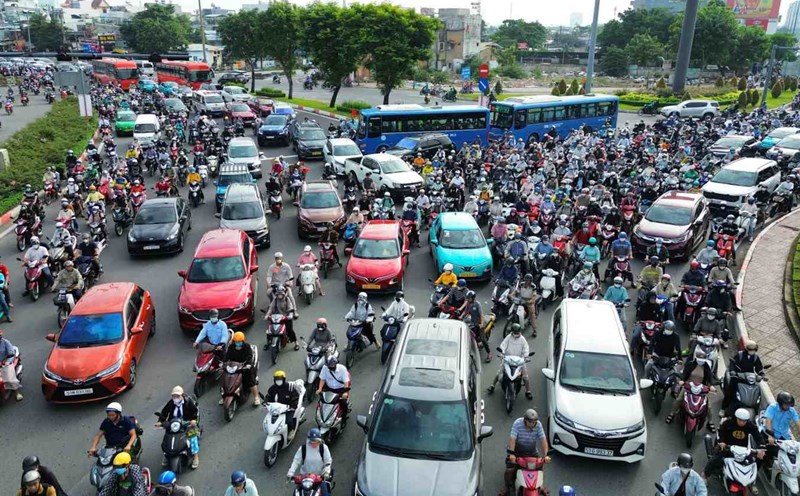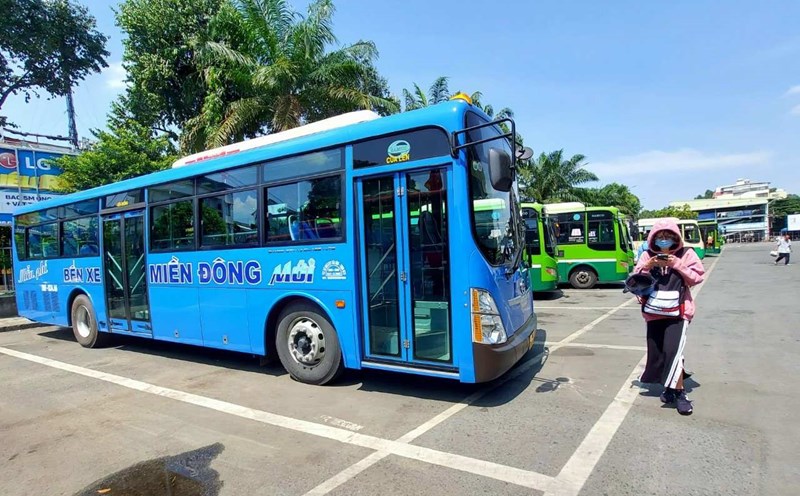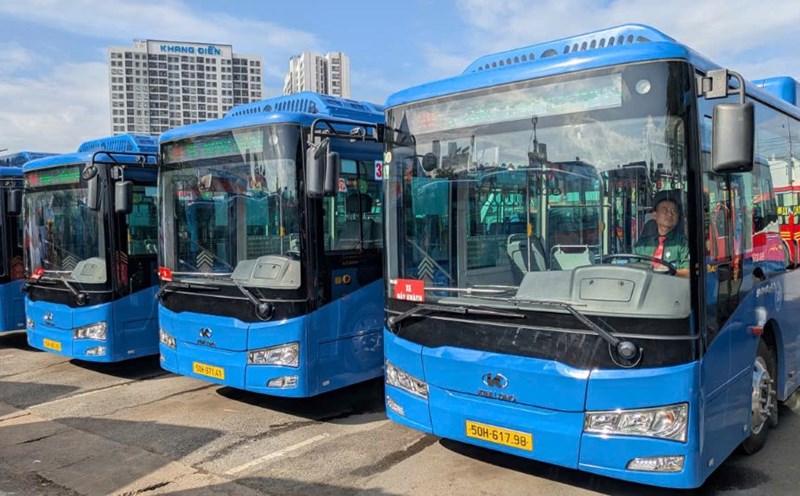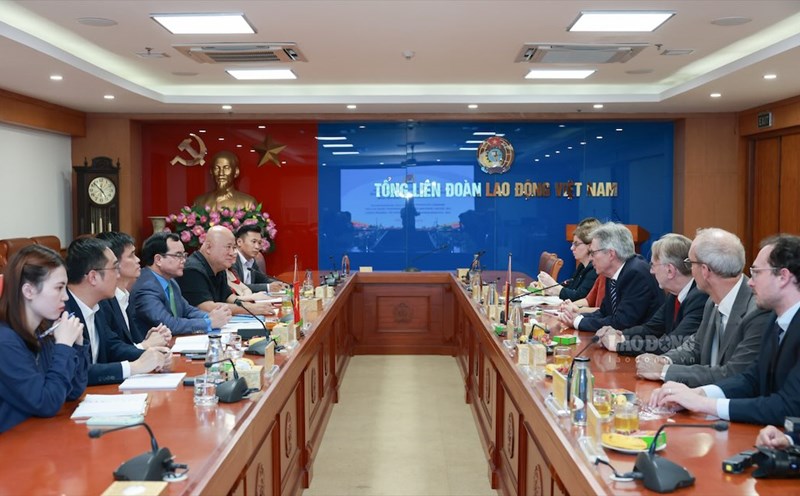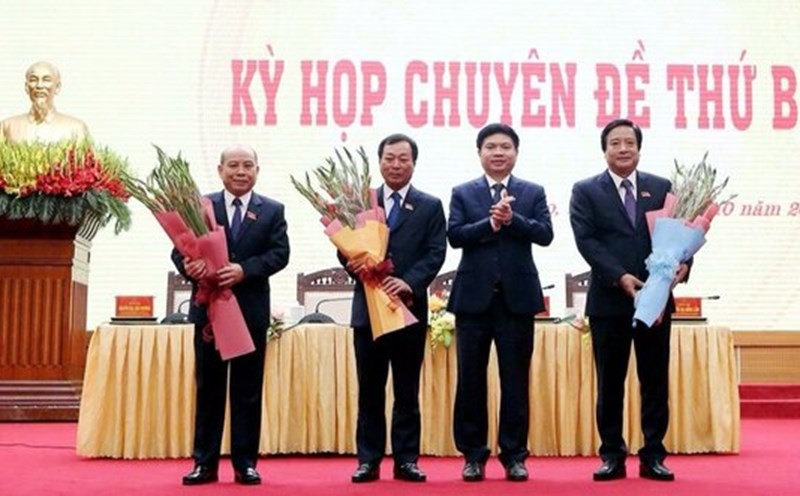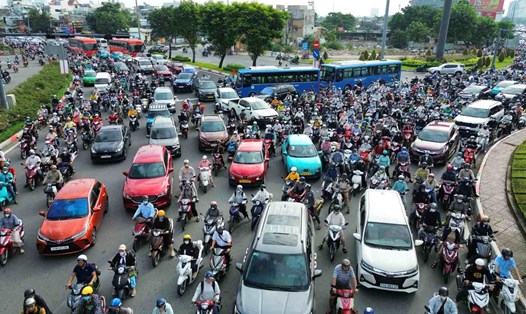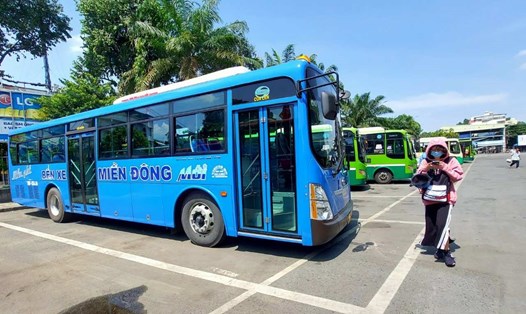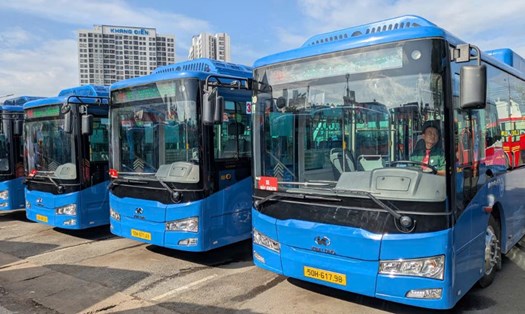The Ho Chi Minh City People's Committee has just submitted to the Standing Committee of the Ho Chi Minh City People's Committee a policy to issue a Resolution of the Ho Chi Minh City People's Council on the conversion roadmap and policies to support public passenger transport by bus using electricity and green energy.
This is phase 1 of the Project to control vehicle emissions in the city.
Currently, the Ho Chi Minh City bus system after the merger has 176 routes, of which 108 routes have subsidies, with a total of 2,386 vehicles. Of these, 627 are electric buses (accounting for 26.3%) and 451 are CNG buses (accounting for 17.9%).
It is expected that by 2030, the number of bus routes will increase to 297 routes, with more than 3,600 vehicles, including 1,474 newly invested vehicles.
According to the Ho Chi Minh City People's Committee, according to Circular 53/2024/TT-BGTVT, vehicles using CNG "only reduce direct carbon emissions when operating" compared to gasoline or diesel vehicles are no longer classified as clean energy vehicles.
Green energy vehicles include: pure electric vehicles, electric vehicles using fuel cells, or vehicles using hydrogen fuel. Therefore, all existing CNG buses will have to switch to electric or green energy buses in the coming time.
Ho Chi Minh City aims for 100% of buses to switch to electricity or green energy by 2030.
Ho Chi Minh City will implement the conversion and investment of 3,011 electric and green energy buses in the period of 2025 - 2030, including 1,537 vehicles replacing old vehicles and 1,474 new vehicles.
In addition to the 627 electric buses in operation, by 2030, the city will have more than 3,600 electric buses.
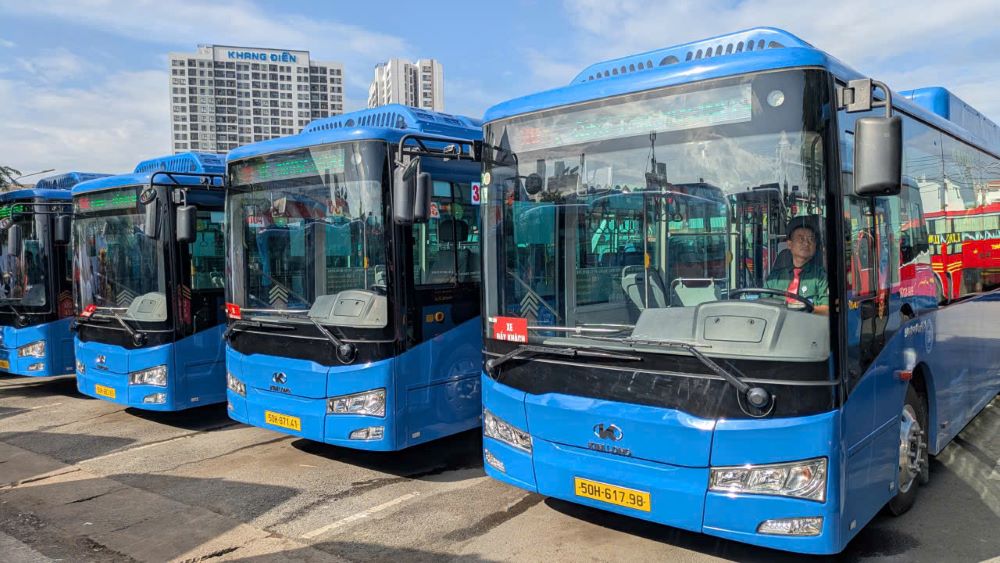
To achieve the above goal, Ho Chi Minh City proposed a policy to support loan interest rates for businesses investing in electric buses and charging station infrastructure.
For electric buses and green energy vehicles: Support interest rates up to 85% of vehicle investment loans, but not exceeding VND300 billion/project (excluding VAT deductible).
For investment in charging stations: Support interest rates of up to 70% of construction investment capital and 85% of technology and equipment investment capital, up to 200 billion VND/project (excluding VAT deducted).
The maximum support period is 7 years, but not exceeding the actual loan period, calculated from the date of initial loan disbursement at Ho Chi Minh City State Finance Investment Company (HFIC).
Currently, Ho Chi Minh City has 5 electric bus charging stations with 56 charging stations, meeting the needs of 627 electric buses in operation.
In the coming period, Ho Chi Minh City will socialize investment in charging stations at 19 bus stations in the central area and 15 bus stations in Binh Duong, Ba Ria - Vung Tau.
State-owned enterprises and public service units also plan to invest in 10 more charging stations in the period of 2025 - 2027.
When completed, the entire system will have 393 super-fast charging stations, capable of serving 5,502 chargers per day.
Regarding technical standards for bus charging stations, according to the Ho Chi Minh City People's Committee, in the context that Vietnam has not issued national standards for bus charging stations and towers, the Ho Chi Minh City Department of Construction has coordinated with the United Nations Development Program (UNDP) to study and complete the "Technical guidelines for electric bus charging stations", based on current national and international standards.
This document has been consulted by the Ministry of Transport, the Ministry of Construction, the Ministry of Science and Technology, the Ministry of Industry and Trade and the Ministry of Public Security, ensuring consistency, feasibility and safety.
The charger will use the CCS2 port - the popular global standard and open source software, making it easy to connect between manufacturers.

